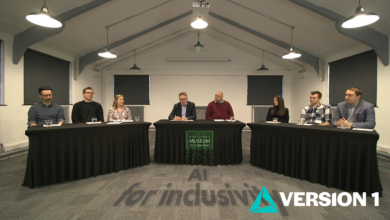Some companies are making a lot of noise about AI without substance to try and latch on to trending technology. But beyond the hype, there are some really exciting and tangible ways that AI is changing the world rapidly.
My experience building an AI-driven software company has confirmed my belief that AI can make the world more equitable if applied thoughtfully. Developing AI for positive social impact, in the case of my company, helping to make perfect smiles accessible to communities and geographies that have typically not been able to access orthodontic treatment, is something that I am passionate about.
In fact, I pride myself on the fact that SoftSmile was using AI before it was mainstream and we have spent years leading the charge to advance orthodontic treatment planning software. Our forward-thinking spirit helps SoftSmile stand out in a niche industry that has a poor reputation when it comes to adopting new technologies.
Breaking Through the Noise and Standing Out From the Crowd
While competitors in the orthodontic space have reached a technology plateau, SoftSmile is pushing the boundaries of AI applications in advancing patient treatment. For example, automation is not offered by most other competitors, and those that do give access to automation at some stages don’t offer full automation. Already, SoftSmile’s automated staging technology is more complex than other solutions. SoftSmile is developing the technology to automate the whole treatment planning process using a deep understanding of biomechanics built into algorithms. By implementing machine learning and neural networks into our software, SoftSmile is able to continue to develop new tools in ways that competitors are unable or unwilling to approach.
The data, models, and algorithms powering the AI behind VISION
The machine learning algorithms in VISION rely on data collected from thousands of anonymized cases where users manually perform tasks. This data served as the training dataset for the algorithms that can partially or completely automate tasks, reducing the burden on users.
When raw scan data is entered into VISION, several processes occur that would otherwise require manual human intervention. One fundamental step is mesh cleaning, where the raw data undergoes cleaning using heuristics and artificial intelligence algorithms, which analyze geometries and remove unwanted elements.
The next step is segmentation, determining which parts of the raw data represent different elements such as teeth, gingiva, or bone. Traditionally, software required users to painstakingly draw lines to distinguish these tissues. Instead, modern solutions incorporate automated algorithms and AI to perform these tasks automatically.
In addition, the AI in VISION’s automated CBCT analysis is based on neural networks, specifically designed to handle CBCT scan segmentation. A neural network is a system of algorithms modeled after the human brain, which is designed to recognize patterns. Building this AI feature involved training the neural network on a large dataset of CBCT scans. Once trained, the algorithm can perform tasks in minutes that would take human hours.
Protecting Innovation
The proprietary algorithms used in VISION are superior to competitors’ due to continuous self-learning. And that’s just the beginning. In merely three years, SoftSmile has secured over 70 patents, with even more pending. This achievement underscores SoftSmile’s relentless pursuit of excellence.
The company has developed and patented advanced techniques in collision detection, segmentation, point cloud methodology, and teeth restoration. SoftSmile pioneered a new approach to automated staging, segmentation, bone analysis, and gingiva reconstruction. At SoftSmile, we believe in patents as proof of innovation.
The future of AI
Looking ahead, AI applications in orthodontics, dentistry, and healthcare will only continue to grow. With more data to train algorithms, future waves of AI advancements will further decrease treatment planning time, improve precision, and personalize patient care. The implications of this growth trajectory include increased access to care, decreased costs, and far fewer barriers to treatment. As more dental professionals adopt AI-powered tools, aligner treatment will become a standard procedure and a commodity, making perfect smiles a reality for all.
—
BIO
Khamzat Asabaev is the founder and CEO of SoftSmile, a technology company focused on delivering best-in-class orthodontic treatment. Khamzat’s mission is to make orthodontic care more accessible and affordable, and he is committed to prioritizing patients over profits. As the leader and visionary, he focuses on advancing the AI-driven capabilities of SoftSmile’s flagship software, VISION, with the goal of empowering doctors to provide higher-quality clear aligners at a fraction of the cost.
Before starting SoftSmile, Khamzat was an M&A attorney at Linklaters for more than a decade, and along the way he founded and co-founded a number of startups, most notably a braces producer in Switzerland (3D Med) and a car-sharing company in Dubai (Motor).



